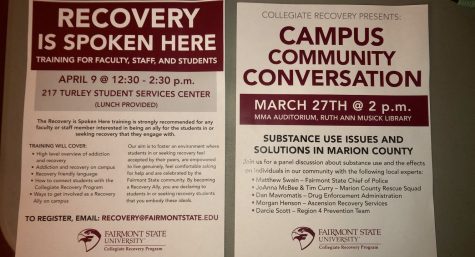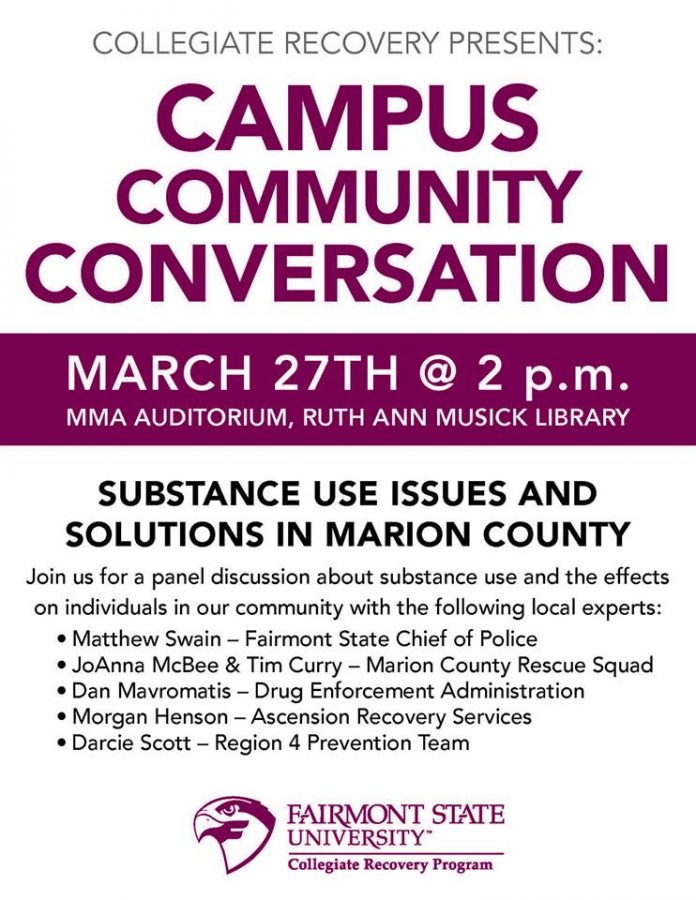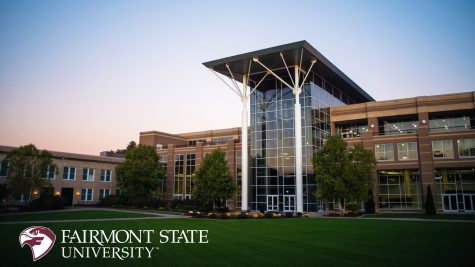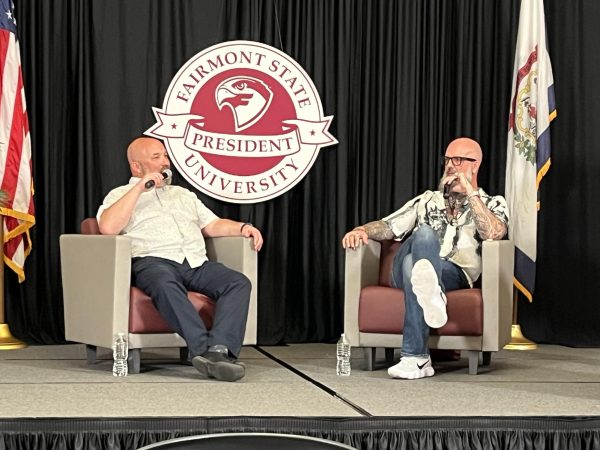Fairmont State Begins Addiction Recovery Support Group

West Virginia is in the midst of an opioid crisis. Being the state with the highest rate of opioid-related deaths in the country according to the National Institute on Drug Abuse, it is hard not to find an individual who hasn’t had drug addiction affect their lives in some way. Whether it’s a friend, family member, or someone directly struggling with drug addiction, the statewide crisis has spared few from its effects. This can be especially hard to deal with for students, who are already under the pressure school brings. The rise of addiction in our state, not only from opioids but other substances, has led Fairmont State to develop a support group for those who may need help with addiction-related problems.
The Recovery Support Group is a group of peers that meets weekly on Thursdays at 12:30 pm in room 316 at the Turley Center. The group meeting is open to anyone who is in recovery or affected by someone who was previously or currently struggling with addiction. I sat down with Andrea Pammer, Director of Health, Counseling, and Acessibility Services, who leads these meetings, to find out more about the group. Andrea says the purpose of the group is to “go into recovery, remain in recovery, and also help people who have been affected by addiction.” Andrea continued, “The goal is to have a program comprised of students who are interested in recovery, are in recovery, or somehow supportive of recovery.”
Andrea explained that there is a type of culture in college that is counterproductive to those in recovery. “The impression is that when you come to college it’s kind of mandatory to party, and drink and do drugs, which is, of course, not conducive to recovery.” Andrea wants the group to ultimately be a place where students can find activities to be involved in with their peers that help them stay sober. The meetings are a place of “mutual peer support”. It’s not a twelve step program, it’s not a religious-based program, it’s not smart recovery, it does not adhere to a rigid structure, simply because we want to make sure everyone feels welcome,” Andrea said. “So it’s any path to recovery that works for you. You will be supported within that group.”
Andrea wants more people to be aware of the group, and to lessen the stigma against those who suffer from addiction. “One of the biggest issues is the stigma attached to it,” she says. A campus community conversation for substance use issues and solutions in Marion County is taking place on March 27th at 2 pm in the MMA Auditorium in the Ruth Ann Musick Library. This event is meant to educate people about addiction and work towards a solution.
Andrea would like anyone who may be on the fence about attending these meetings to “Come and try it, and listen, and see, and don’t give up.” Andrea adds, “Everyone in that group knows what it’s like, some of the stories of the people that are in this group are absolutely remarkable. You would not believe that people can come back from where some of these folks have been and be here now.”
Andrea also wants anyone who is struggling – but may not want to join the group – to know that they can help you connect with other resources. “There’s also always another path and it’s difficult, but there is hope. If you would ask some of the people in the recovery group now, when they were in their addiction, they would not have thought they’d be there.” Andrea finishes with, “Don’t give up. If your time’s not today, it may be next week. If not next week, maybe the week after, or maybe not the next week or the week after but a month from now. Opportunities will remain.” If you would like to find out more about the group you can Like their Facebook page, and follow their hashtag #SoberFalconsSoar.









